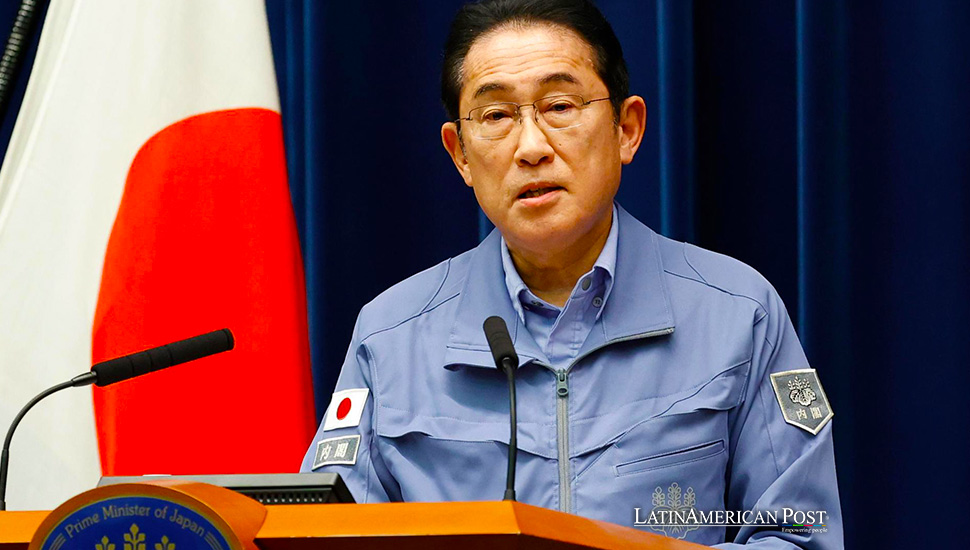Brazil’s Lula and Japan’s Kishida Pave the Way for Mercosur Trade Deal

In an era where international trade alliances are paramount, Brazil and Japan are contemplating a collaboration that could yield significant economic benefits for both countries and their respective regions. During their recent phone conversation, the Brazilian government revealed that Lula and Kishida delved into strengthening trade relations between Latin America’s largest economy and Japan.
Brazil’s Ambitious Trade Aspirations
However, the intrigue extends beyond bilateral relations. The Brazilian government statement disclosed an even more ambitious endeavor: the possibility of a trade agreement involving Mercosur, a formidable customs union comprising Brazil, Argentina, Uruguay, and Paraguay. This tantalizing prospect could have profound implications for global commerce, potentially reshaping existing trade dynamics in South America.
Mercosur has long been negotiating to finalize a much-anticipated trade agreement with the European Union (EU). This partnership holds significant promise for both regions. Yet, Lula has voiced a desire for Mercosur to broaden its horizons by “exploring new negotiation fronts” with Asian nations, a strategic shift that could further elevate the bloc’s global stature. Beyond EU discussions, the South American alliance is now contemplating deeper trade connections with Asian economic giants such as China, Vietnam, and Indonesia.
Uruguay, one of Mercosur’s members, has fervently advocated for the swift conclusion of the EU-Mercosur talks. Their enthusiasm is driven by the aspiration to initiate negotiations with China, a testament to the allure of the Chinese market. As the world’s second-largest economy, China’s voracious appetite for international trade makes it an enticing partner for nations across the globe.
Mercosur’s Shifting Alliances
Recent developments underscore Mercosur’s evolving stance. The trade bloc has recently inked a groundbreaking trade and investment pact with Singapore, marking its first-ever agreement with an Asian nation. Additionally, Mercosur has set its sights on forging similar accords with other Asian powerhouses, including South Korea. These endeavors herald a paradigm shift in the trade strategies of South American nations.
One of the driving forces behind Brazil’s enthusiasm for expanded trade relations is its robust agricultural sector. With a keen eye on growth opportunities, the Brazilian farm sector is eager to expand its reach, particularly in exporting food products to Japan. A potential trade agreement involving Mercosur would undoubtedly facilitate this ambition, providing a platform for Brazil to showcase its agricultural prowess on the international stage.
In 2022 alone, Brazil exported a staggering $6.6 billion worth of goods to Japan, including soybeans, iron ore, aluminum, chicken, corn, and coffee, according to data from the Japanese Foreign Ministry. In return, Japan imported $5.3 billion of products from Brazil, focusing on automotive parts and integrated circuits. This vibrant trade relationship has fueled the two nations’ economic growth and cultural exchange.
The Future of International Commerce
As the world grapples with the complexities of global trade, the discussions between President Lula and Prime Minister Kishida represent a glimpse into the future. The prospect of a trade agreement involving Brazil and Japan and the influential Mercosur bloc underscores the dynamic nature of international commerce. It is a testament to the ever-evolving landscape of global partnerships and economic cooperation.
Also read: Brazil’s Visa Reversal: Tourist Visa Requirements for U.S., Australia, and Canada Delayed Again
While the path ahead may be fraught with challenges and negotiations, the potential benefits are too significant to ignore. A comprehensive trade agreement involving Mercosur could unlock new opportunities for economic growth, foster innovation, and deepen cultural ties between South America and Asia. As Brazil and Japan embark on this ambitious journey, the world watches with bated breath, aware that the outcomes of their discussions could redefine the contours of international trade for years to come.




